Ecole Crescent Park Elementary 24-25


OUR CONTEXT
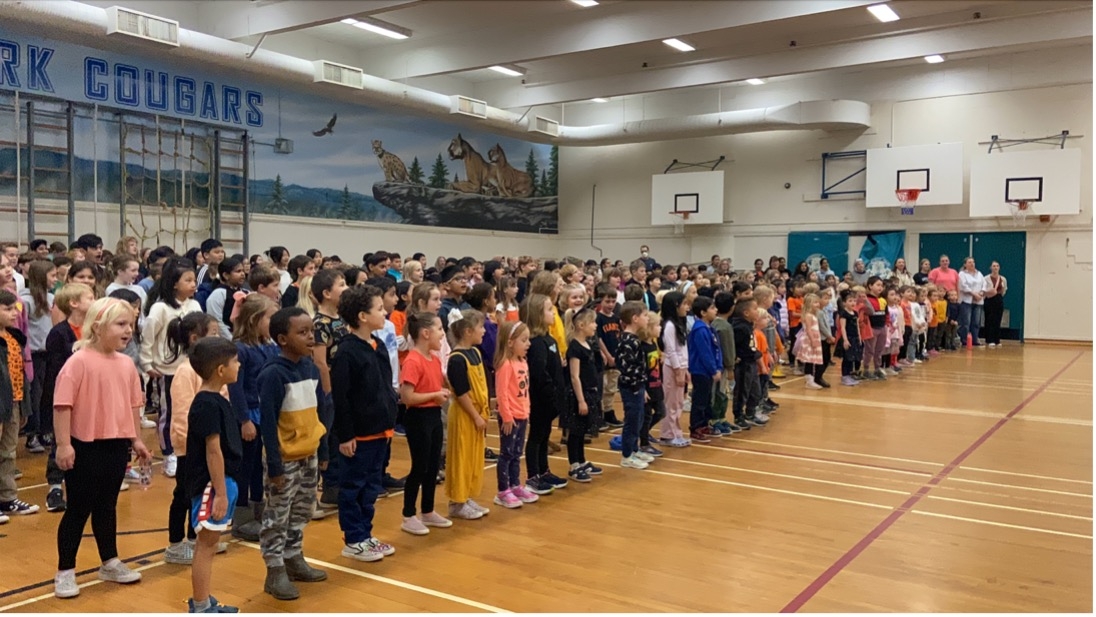
“Tell me and I forget, teach me and I may remember, involve me and I learn”
~ Benjamin Franklin
Crescent Park continues to be a vibrant, community-oriented school with a history that stretches back to 1917. The school’s strong sense of tradition and family is fostered through the multi-generational connections within our community. This shared history and commitment to excellence create a unique sense of belonging and pride among our students, staff, and families.
This year, we remain steadfast in our mission to provide an inclusive environment where students can thrive academically, socially, and emotionally. Our classrooms reflect a collaborative spirit, emphasizing growth mindsets and a love of learning as foundational principles. We strive to create opportunities where every child can see themselves as capable and valued contributors to their school and broader community.
The natural beauty of our surroundings further enriches the Crescent Park experience, encouraging active, experiential learning. Outdoor education is integrated into our practices, allowing students to explore and connect with the environment around them. These experiences not only deepen their understanding of the world but also nurture curiosity and creativity.
In addition to emphasizing academic success, Crescent Park champions the importance of fostering kindness, positive relationships, and community involvement. These values form the cornerstone of a nurturing environment where all students feel supported and empowered to achieve their full potential. By working together as a school and community, we aim to cultivate a culture of respect, empathy, and lifelong learning.
OUR LEARNERS
Crescent Park is home to approximately 300 students who bring enthusiasm and curiosity to their learning journeys. Recognizing the diverse needs and strengths of our learners, we are committed to creating an inclusive and supportive environment that nurtures academic, social, and emotional growth. Our students thrive in settings that emphasize hands-on, experiential learning, which is enriched by the natural surroundings of our school community.
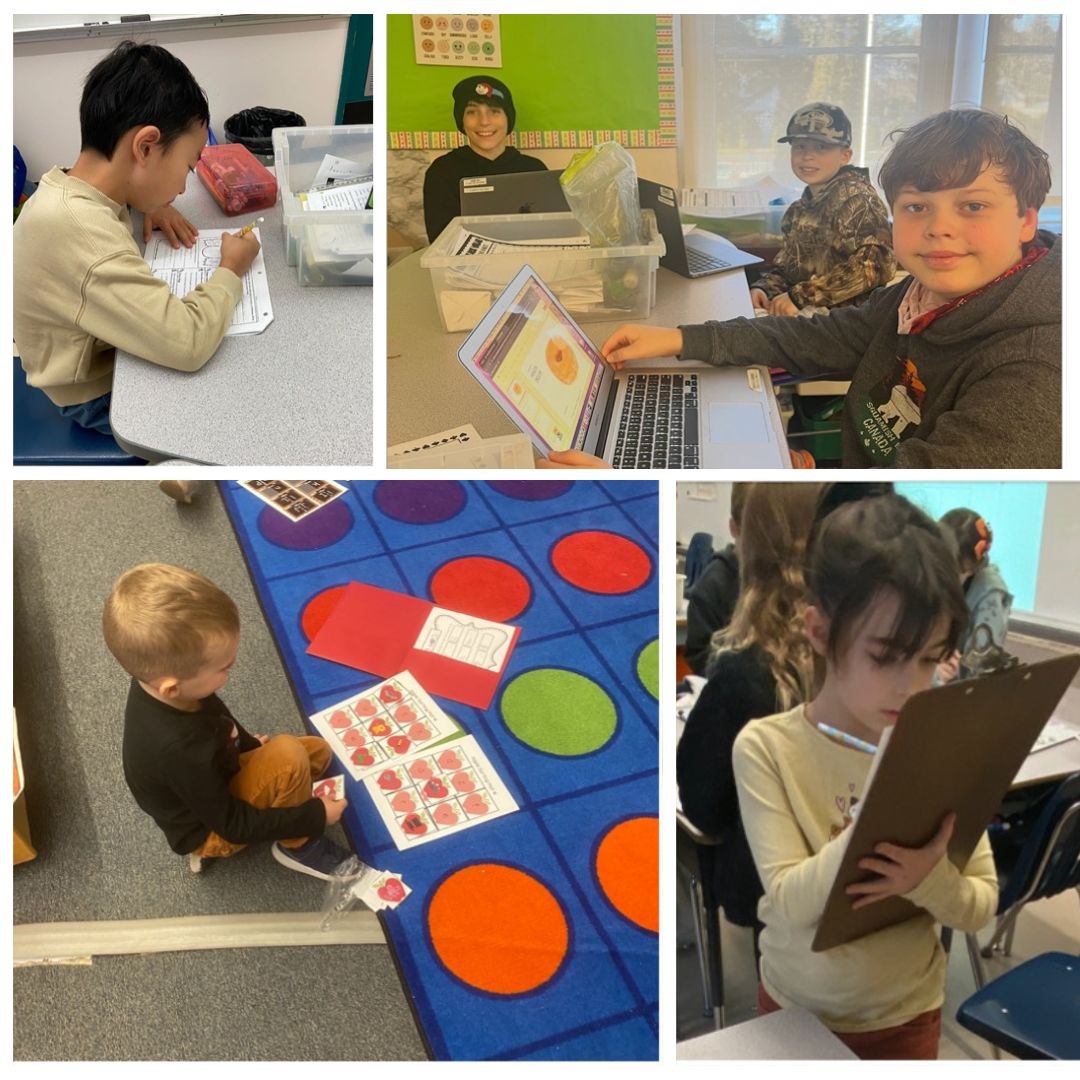
Writing continues to be a critical focus, as it enables students to effectively communicate their ideas across curricular areas. Teachers have observed challenges in students’ writing output, particularly in sentence structure, grammar, and punctuation. The new literacy framework addresses these challenges by grounding writing instruction in strong phonics and vocabulary development. Through this integration, our youngest learners gain the tools they need to transition from decoding words to expressing their thoughts in writing.

Additionally, we aim to extend this foundation into the intermediate grades by emphasizing advanced writing strategies and critical thinking skills. By ensuring a continuum of support from primary to intermediate levels, we seek to foster well-rounded literacy skills that prepare our students for lifelong learning.
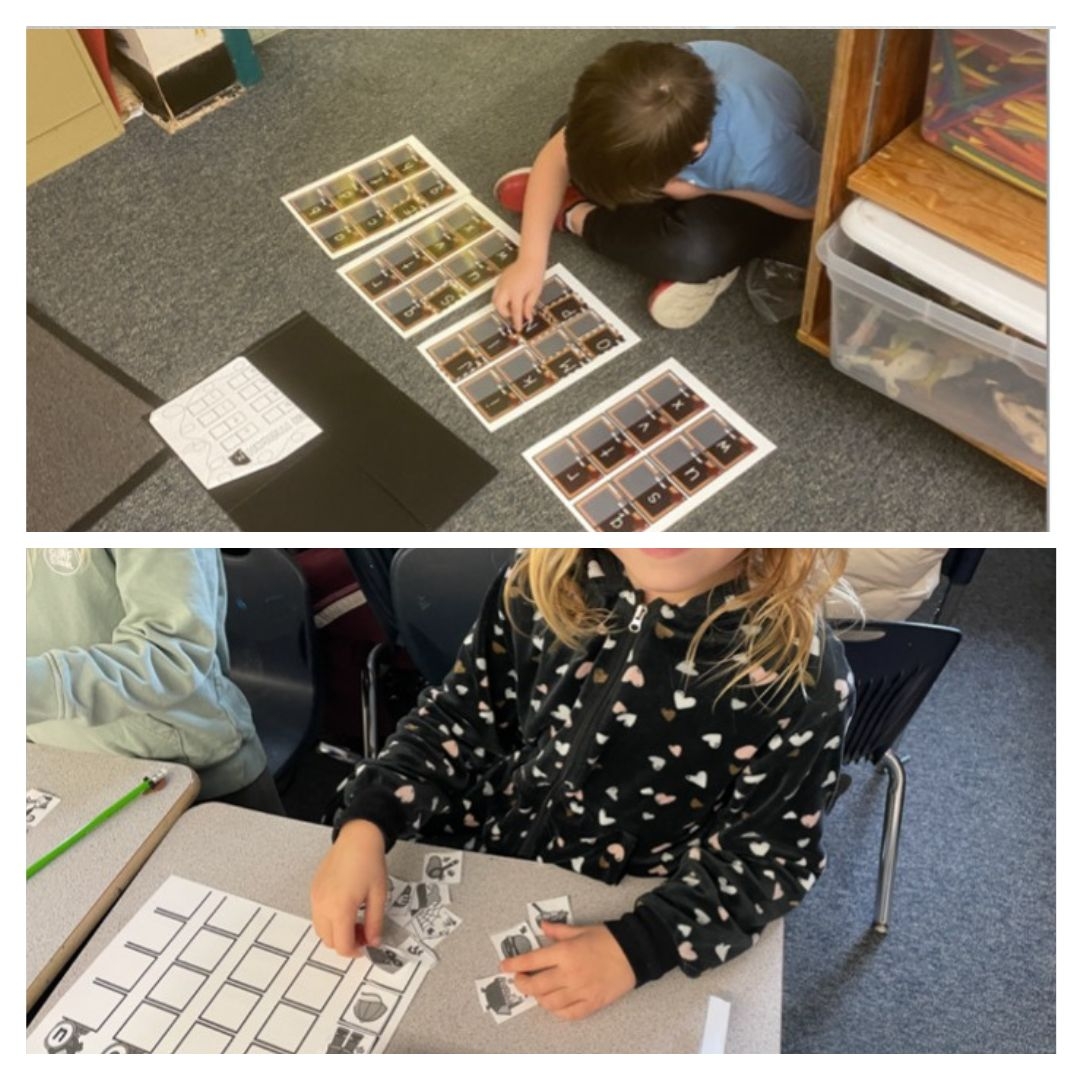
OUR FOCUS
This year, Crescent Park is expanding its literacy initiatives by integrating a structured, research-based literacy framework across early primary classes. This approach links reading instruction with writing development through a systematic focus on phonics, spelling, and decoding. These foundational skills serve as a vital bridge to achieving success in writing.
A strong emphasis is placed on phonemic awareness, which helps students hear and manipulate the sounds in words, an essential skill for spelling and encoding during writing. Through consistent phonics instruction, students gain an understanding of letter-sound relationships and common spelling patterns, empowering them to write with increased independence and accuracy. The use of carefully selected texts supports structured writing activities that reinforce phonics and spelling knowledge in meaningful contexts.
In addition to spelling and decoding, the literacy framework also nurtures writing development by expanding vocabulary, teaching sentence construction, and promoting grammatical accuracy. Vocabulary instruction enhances students’ ability to express themselves, while explicit sentence-building practice ensures their written work is both coherent and grammatically sound. As students become more fluent readers and spellers, their cognitive energy is freed to focus on higher-level writing tasks such as organizing ideas and developing narratives.
To embed these practices into daily classroom routines, teachers use activities such as dictation, writing prompts, and creative writing extensions based on decodable texts. These strategies provide scaffolding that supports the seamless transfer of foundational literacy skills into effective written communication.
This year’s goals include:
- Equipping teachers with professional learning opportunities and resources to support effective implementation of literacy instruction.
- Prioritizing instruction in sentence structure, grammar, and punctuation alongside phonics.
- Using progress monitoring tools and BC Performance Standards to track student growth in both literacy and writing.
- Amplifying student voice in the learning process by:
- Hosting student forums to gather input on engaging literacy practices.
- Involving student representatives in the planning of school-wide literacy initiatives.
- Providing opportunities for students to showcase their reading and writing growth at school events or assemblies.
Cohort teachers collaborated to set a timeline for literacy assessments and engaged in meaningful discussions around the strategies they used to support writing development. Assessment evidence was gathered in September, March, and June to monitor and guide student progress throughout the year. While writing is a school-wide focus, the data presented below was collected specifically from our early primary classes, kindergarten to grade 2, where the structured literacy framework was first implemented.
SEPTEMBER
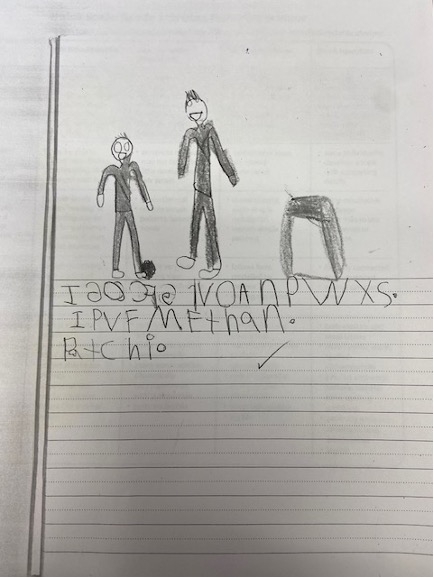
MARCH
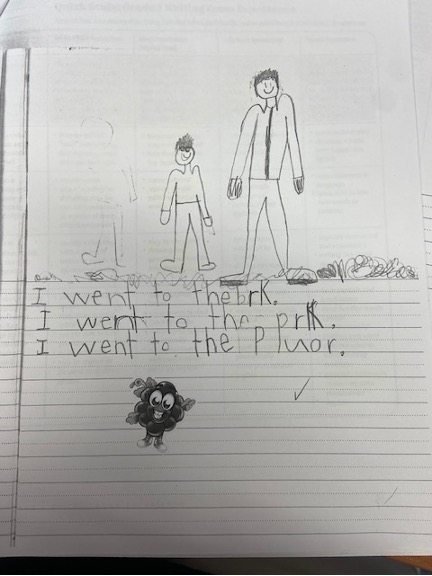
JUNE
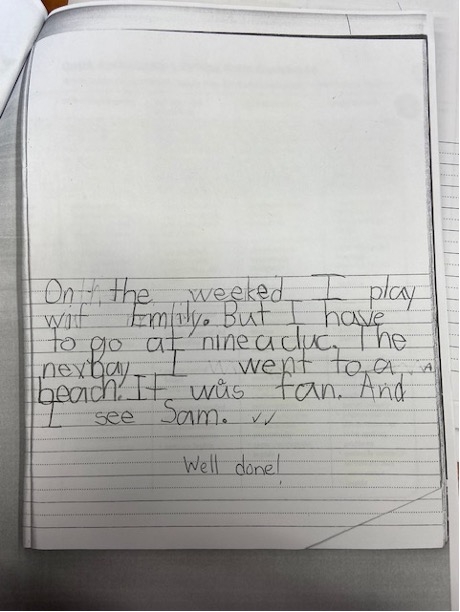

Early data collection from beginning implementations of our structured literacy approach in select classrooms has shown encouraging results. Teachers reported:
- Increased student engagement during literacy activities.
- Noticeable improvements in phonemic awareness and decoding skills.
- Enhanced confidence in young learners as they progressed from decoding to encoding (writing).
In addition, writing samples collected throughout the year revealed:
- More consistent use of correct capitalization and punctuation.
- Growth in the quantity and detail of students' written work.
- More frequent and accurate use of complete sentences.
OUR NEXT STEPS
To continue building on the momentum of our literacy initiatives, Crescent Park is focusing on several key areas:
- Broaden Structured Literacy Implementation
We aim to extend the use of systematic literacy strategies across all primary classrooms. This includes providing ongoing professional learning and support for staff to ensure consistency and sustained progress in instruction. - Support for Intermediate Students
Building on the strong foundation established in the early years, we will:- Enhance literacy and writing instruction for intermediate learners.
- Introduce advanced writing strategies and critical thinking exercises to deepen students’ engagement with texts and strengthen their expressive abilities.
- Monthly School-wide Writes
To promote consistent writing practice and support school-wide literacy development, we will implement a monthly School-wide Write for all students.- Each writing task will align with the Brainfit Superpower of the Month, integrating Social-Emotional Learning (SEL) into the writing process.
- Topics will provide a unified writing focus across grades, allowing for meaningful comparison and reflection.
- Writing samples will serve as valuable evidence of student growth over time and will help celebrate student voice and creativity.
- Community and Family Engagement
Collaboration with families and the broader community remains central to our efforts. We plan to:- Share practical resources and tips with families to support literacy development at home, through newsletters or brief workshops.
- Encourage family involvement in school literacy events, such as read-aloud days and family reading nights.
- Ongoing Monitoring and Reflection
Data-informed practices will continue to guide our decisions. Specifically, we will:- Analyze trends in literacy and writing to identify growth areas and target supports.
- Facilitate professional collaboration among staff to share best practices and refine instructional approaches.
By integrating these next steps with our existing goals, Crescent Park remains committed to cultivating a strong culture of literacy. Together, we look forward to a year of growth, collaboration, and continued success for all students.
